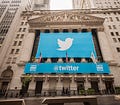A couple of weeks ago, huddled up in a Coral Gables WeWork, I hopped on a call with Freddie deBoer—Xennial, Marxist, fellow Substacker, and author of The Cult of Smart. We talked about political versus social power, how trends are cyclical, the Gawker era of media, and why Twitter politics seem to have a chokehold on journalism.
© 2024 Default Friend
Substack is the home for great culture


